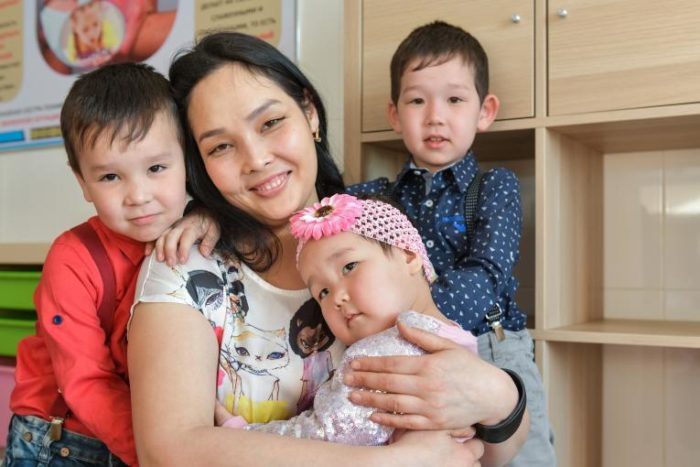NUR-SULTAN – More than 5,000 school psychologists and mental health specialists have been trained since April at the psychological assistance website initiated by the United Nations Children’s Fund (UNICEF) and the National Center for Mental Health (NCMH) under the Ministry of Healthcare.

Photo credit: UNICEF in Kazakhstan.
A special website Covid-19.mentalcenter.kz provides practical recommendations on stress management techniques and self-help for children and adolescents, people with disabilities, healthcare workers and people in self-isolation during the lockdown.
As a result, approximately 300 people received free virtual consultation with a psychologist after leaving a request, reported the press service of UNICEF in Kazakhstan. Some 58 specialists were selected throughout the country from more than 100 psychologists who volunteered to become online counsellors. Some 32,381 users have visited the website so far.
UNICEF Representative in Kazakhstan Arthur van Diesen noted that psychological support plays a key role in maintaining mental health during quarantine and isolation as the spread of the novel coronavirus has affected the lives of children and their families in multiple ways.
“Thanks to these initiatives and the cooperation of all partners we were able to support the organization of more than 276 individual online sessions. Online consultations occur in parallel with professional capacity development in the field of remote psychological support. Up to now, over 50 capacity building sessions have been organized on the topic of psychological support and mental health needs of children and adolescents, families, front line health workers involved in the COVID-19 response, and those who lost their loved ones. We are committed to expanding our support to reach more families in need,” he added.
On May, the platform also started counselling services for school psychologists nationwide as part of the joint action plan of the Kazakh Ministry of Education and Science, NCMH and UNICEF. Guidelines with practical tips and exercises were also developed and distributed.
The main focus of the sessions is on how to give remote psychological support and counselling to families and children and how to prevent burnout and stress among school staff.
About 50 online webinars have been conducted for school and college psychologists with 7,960 online participants.
“On behalf of all psychologists of the Almaty region I want to express my gratitude to the organizers of these webinars. The information was very practical and effective – we learned a lot of skills which we could use in our daily work and life. The trainers explained the materials very well,” said coordinator of educational psychologists in the Almaty region Dinara Kydykenova.
The webinar recordings on YouTube were available for residents in remote settlements with limited Internet connectivity as well.
Parents and those in need can also contact a school psychologist or call the 1406 hotline of the Ministry of Healthcare, 150 trust line, WhatsApp +77081060810 or the website www.telefon150.kz.

